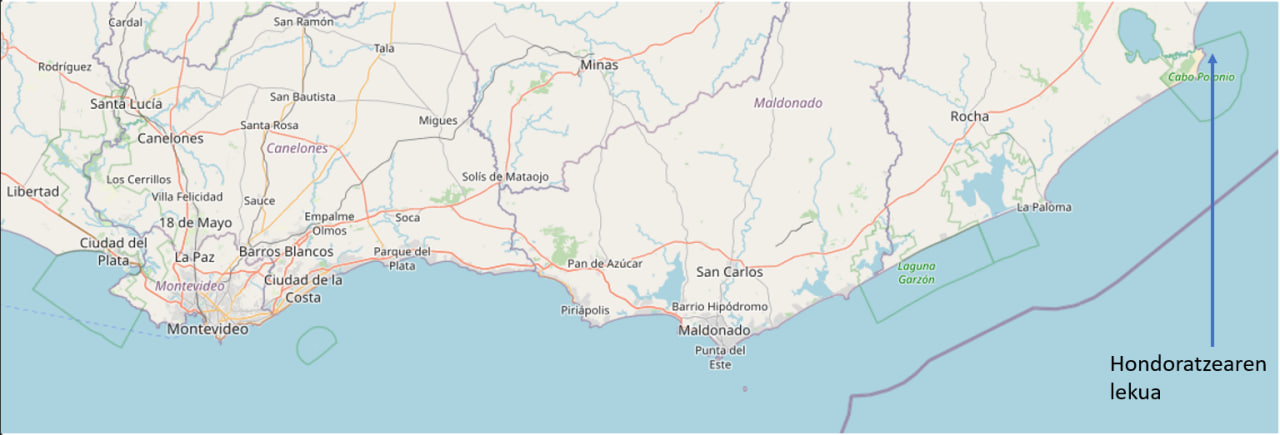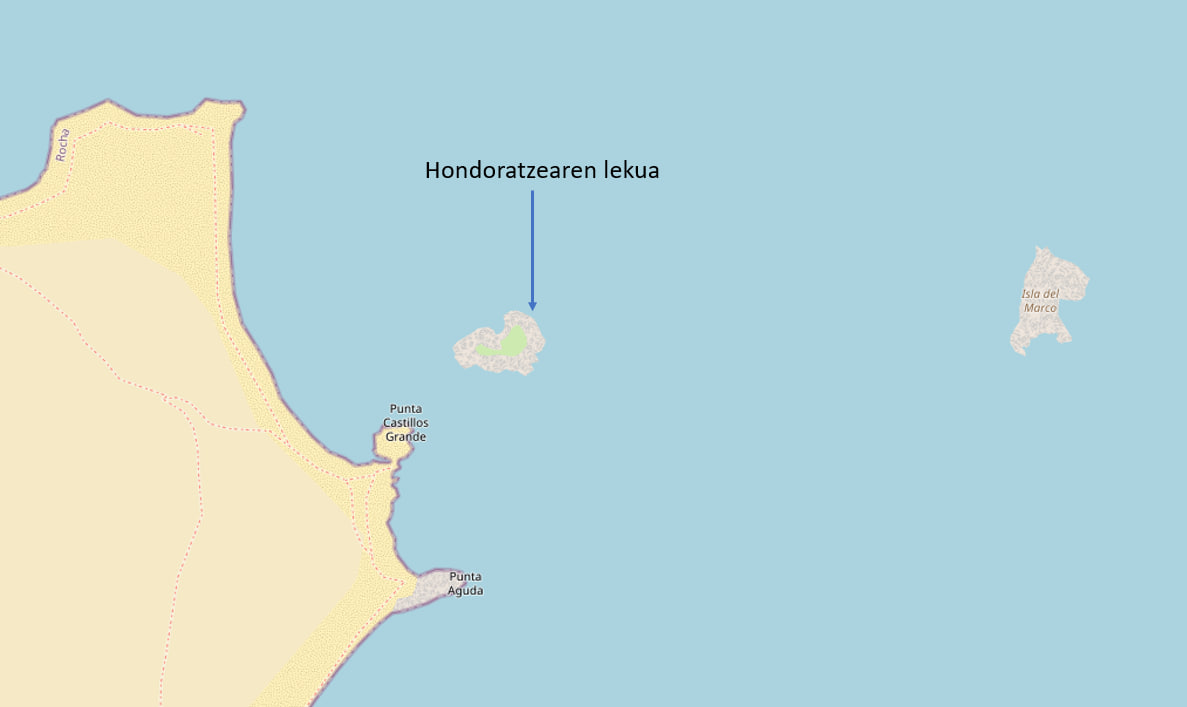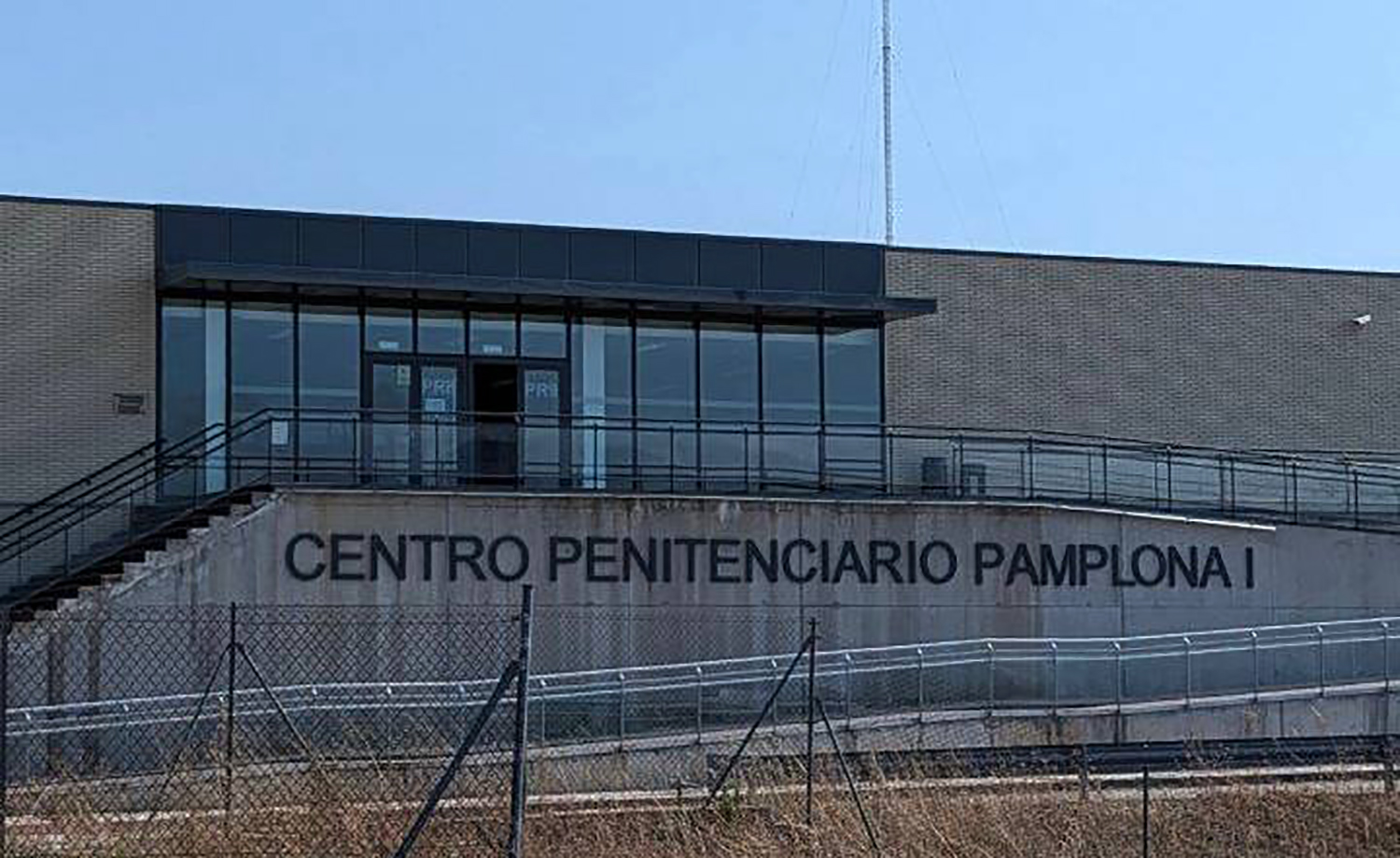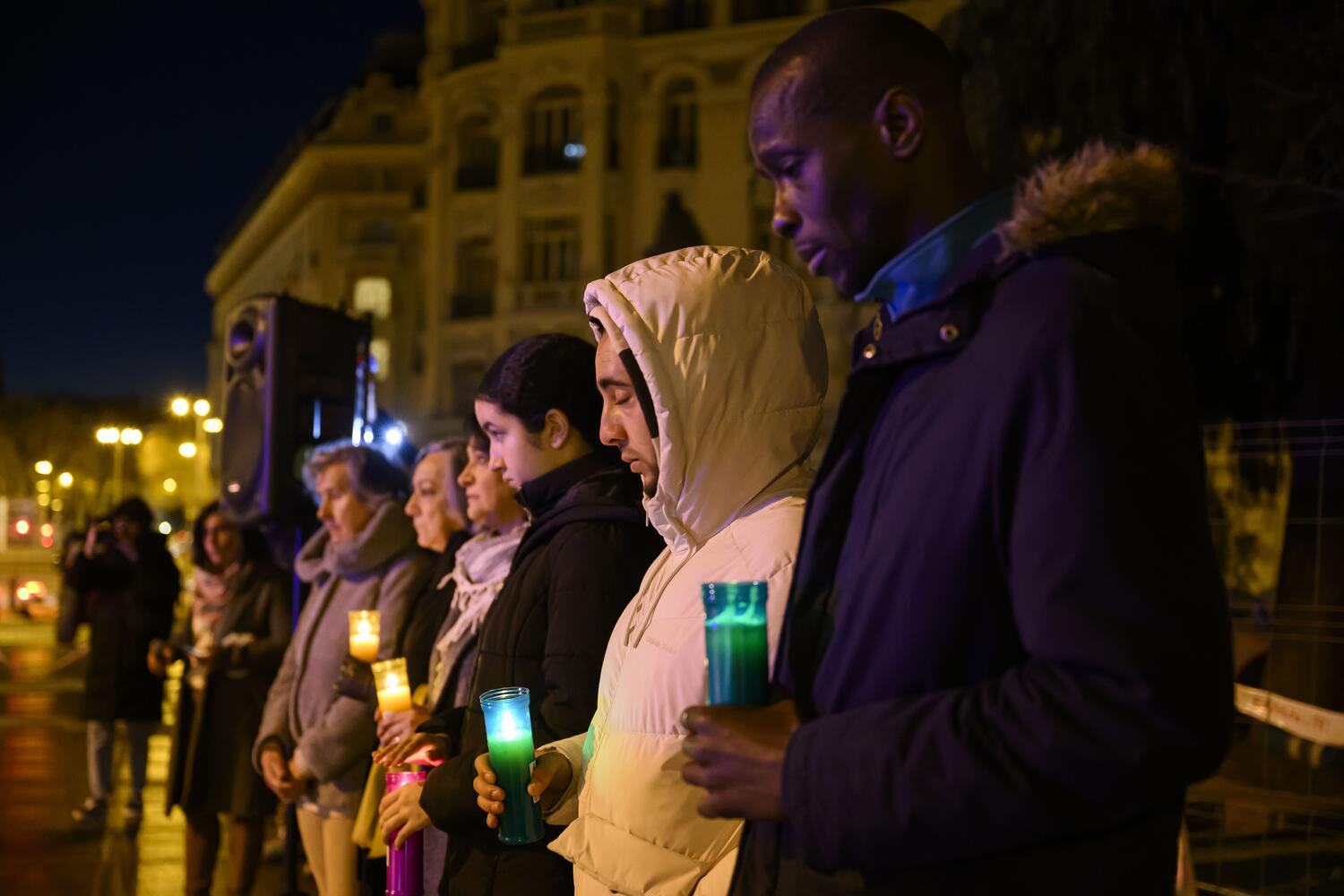Fleeing hunger and war, like the Africans of today, the former Basques
- We bring you the thread that the Bermean fisherman Andoni Gabantxo published on the Mastodon social network in an article format, with his approval. In today's refugee debates, let us not forget that some of the refugees of yesterday were our ancestors, fleeing the ports here, crossing the sea in precarious conditions, paying for their lives on some journeys.

It often happens to me to hear some functional illiterate who is bothering people fleeing conflict and hunger in their countries of origin, not forgetting that the whole of Europe has been the land of migrants for a long time. What do the Africans who step into a skate in the 21st century escape to? Above all, war and hunger. What did the Basques of the 19th century escape to? Above all, war and hunger. Let us clarify.
1842. In the Northern Basque Country, in what we now call 'Iparralde' or 'Euskal herria de France', the 'monarchy of July' is in full swing. The French revolution has been left behind (for the time being), as well as all that she brought, including several wars, the mandate of Napoleon Bonaparte… The king is Luis Felipe de Orleans, who in time will be the last king of France (although then Napoleon III will be crowned emperor). But beyond the fame and the great names of the monarchies, how did the people live? Well, we'll see it in an explanatory detail. In 1841, work on children under 8 years of age and night work on children under 13 were prohibited, but this law was not enforced. About 3 million French registered in the charitable offices for not having enough income to live. In France there were about 250,000 beggars. A few years earlier, the cholera epidemic caused the death of nearly 100,000 French people. And in the south of the Pyrenees, things were no better. It was only one year before the First Carlist War ended. Queen Isabel II.ak was 12 years old and ruled by General Baldomero Espartero. Political conflicts generated social and economic conflicts. It is estimated that approximately 90% of the population lived below the threshold we now call the 'poverty threshold'. In fact, in 1849, the Public Welfare Act was published. It did not solve the problem of poverty, but its promulgation is proof of its necessity.
“Those boats had no toilets, there were people sleeping on the knife, the drinking water was rotten, the food was not enough with clarity, considering that the journey was several months and, furthermore, there was no way to facilitate survival in case of any problems at sea”
In 1842, in Baiona (Lapurdi), a sailing boat of three masts was being prepared, called “Leopoldina Rosa”. Their burden was above all human. It sailed on 31 January. Your destination, Montevideo, Uruguay. When we talk about a sailing boat with three clubs, many of them think of a large boat similar to that of Juan Sebastián Elcano. Well, no. It was a boat of 32 meters in length and 9 meters in sleeves. Travel conditions were not ideal. Despite the promises of the 'hooks' that organised the journey (' travellers will have at least twice a week fresh meat', the advertising of the time said), actually the overload of travellers made things very difficult. These boats had no toilets, there were people sleeping on the knife, the drinking water was rotten, the food was not clear enough, given that the journey was several months and, furthermore, there was no way to facilitate survival in case of any problems at sea. They went in the direction of Montevideo. But first, a stop to collect more cargo, in Pasaia (Gipuzkoa). The reason for this scale was apparently that the French authorities were quite strict in terms of the number of passengers the ship could carry, and not in the Spanish case. As is currently the case, the poverty of some was an option of others who charged excessive amounts for taking them to their destination. At that time this business was called "White Trade" for something. And as is currently the case, those who did not pay for the debt they contracted had problems. In fact, many of the immigrants knew they could not afford to pay, and once in America they offered themselves as slaves to the former who paid the ticket for them. And if no one did, they were under the government of Uruguay, which guided them and made them work in a regime of temporary semi-slavery, as showed in a report of the journal El País de Uruguay: « Basques engulfed in Montevideo, 1836« .
The fate of hope cannot be reached
Uruguay had been independent for more than a decade and, if Spain still did not recognize its independence, it reached agreements with the government of that country to send emigrants. Thus, the boat sailed from Pasaia, crossed the entire Atlantic from north to south and east to west, until it reached the South American coast. But they say that every narrow dog is aphid, and in this case the coconuts looked like a strong tempest in the southeast. It should be borne in mind that we are not referring to current navigation, as current maps and satellite location are very precise, which makes things very easy. At that time they depended on a clock, a sextant and a compass, and if the sky was cloudy, on luck and intuition. The coast was sought to follow her to the finish line. This wind from the south-east caused the boat to divert towards a fundus near Polonius.

There, near the « Isla Seca », the boat was stranded, and in the photo of the ID they also picked up the leaves that gave them the sea (let me anachronism, no more graphic description occurs to me). The captain, a Frenchman from Dunalbuquerque named Hippolyte Charles Marie Frappaz, tried to save the crew and the passengers.

To do so, he ordered a boat to be thrown with two rotators, to open a cape of the boat to the ground and, in this way, to take the people out using as a guide (forming a scaffold, something similar to a zip line). However, the waves were excessive and the boat overturned; after rescuing those from the boat, the captain ordered a sailor to swim on the ground, holding a thin cape to the body, and then using it to open the fat cape. But the sailor refused. The order was given to another sailor and then to another, but no one complied with it. “Ass, I choose mine, Hypolitus, and I guess your dirty father goes out into the water,” or something like that, in French, that’s right. Indeed, the sailors, minus three, decided to save themselves and gain the coast by swimming, leaving on the boat the captain, the doctor, the boatman and a few more, especially women and children.
Thus, some of the emigrants went into the water to try to save themselves by swimming. The coast was about 300 meters away, it wasn't an insurmountable distance, and some got it, but the weakness of a few months, after being almost uneaten, and the anger of the waves, caused most of them to sink. The rest of the passengers and the sailors found themselves in the middle of the ship. And it was made by day, and everybody expected time to get better, but what happened was that the sea had split in two. All of a sudden they were seen in the water. And they didn't have a chance to save her.
The death toll rose to 231 people. 72 survived to deal with the violence and looting of people waiting for them to be robbed of how little they still kept on the ground. Then there were also some who were sympathetic to the people who came in kicks (excuse me, I mean with a schooner), and a couple of the inhabitants of the area had protected the shipwrecks that day, ending the violence of the robbers.
“Currently, it is estimated that 9% of Uruguayans are descendants of the Basques. Among them are 11 presidents of the country. It is not bad for those who have come fleeing from hunger."
Currently, it is estimated that 9 per cent of Uruguayans are descendants of the Basques. Among them are 11 presidents of the country. It is not bad for those who have come fleeing from hunger. I had a hard time finding information about this shipwreck. The truth is that there are some items on the Internet (very little), but most of the information I have obtained from an exhibition I made a few years ago at the Zumalakarrangi Museum in Ormaiztegi. On the website of this museum you can see a summary of the exhibition. Highly recommended.
Aljeriatik datoz Mohamed eta Said [izenak asmatuak dira], herri beretik. “Txiki-txikitatik ezagutzen dugu elkar, eskolatik”. Ibilbide ezberdinak egin arren, egun, elkarrekin bizi dira Donostian, kale egoeran. Manteoko etxoletan bizi ziren, joan den astean Poliziak... [+]
Kritika artean abiatu dira Gasteizko Arana klinika zena Nazioarteko Babes Harrera Zentro bilakatzeko obrak. Ez auzokideak, ez errefuxiatuekin lan egiten duten gobernuz kanpoko erakundeak, ez PSEz bestelako alderdi politikoak ez daude ados proiektuarekin: makrozentroen ordez,... [+]
Europako Batzordeak lege-proiektu berri bat aurkeztu du asteartean. Dokumenturik gabeko pertsonak jatorrizko herrialdeetara edo igarotze-herrialdeetara deportatzeko prozesua areagotzea eta azkartzea helburua du.
Harrera-herri euskaldun nola izan gaitezkeen galdetu zion Leire Amenabarrek bere buruari eta parean zituenei iaz, Gasteizen, harrera-hizkuntzari buruzko jardunaldietan, eta galdera horrexetan sakontzeko elkartu gara berarekin hilabete batzuk geroago. Amenabarrek argi du... [+]
“Bi pertsona mota daude munduan: euskaldunak, batetik, eta euskaldunak izan nahiko luketenak, bestetik”. Gaztea zela, Mary Kim Laragan-Urangak maiz entzuten omen zuen horrelako zerbait, Idahon (AEBak), hain zuzen. Ameriketan jaio, hazi, hezi eta bizi izandakoak 70... [+]
Aurrekoan, ustezko ezkertiar bati entzun nion esaten Euskal Herrian dagoeneko populazioaren %20 atzerritarra zela. Eta horrek euskal nortasuna, hizkuntza eta kultura arriskuan jartzen zituela. Azpimarratzen zuen migrazio masifikatua zela arazoa, masifikazioak zailtzen baitu... [+]
Hamasei migrante atxilotu zituzten otsailaren 6an Baionan, etorkinen eskubideen aldeko elkarteek salatu dutenez. Dirudienez, Baionako prokuradoreak eman zuen agindua. Operazioa autobus geltokiaren eta Pausa harrera zentroaren artean gauzatu zuen poliziak, tartean, adingabekoak... [+]
Zutabe hau idazten nengoela, gaia aldatu behar izan dut, nire arreta osoa harrapatu dutelako Trumpen muga-zergek. Azalpen gutxi beharko duzue, leku guztietan da berria, Txinako produktuei %10eko zerga eta Kanadako eta Mexikoko produktuei %25eko muga-zergak jarri dizkie. Trumpek... [+]




















